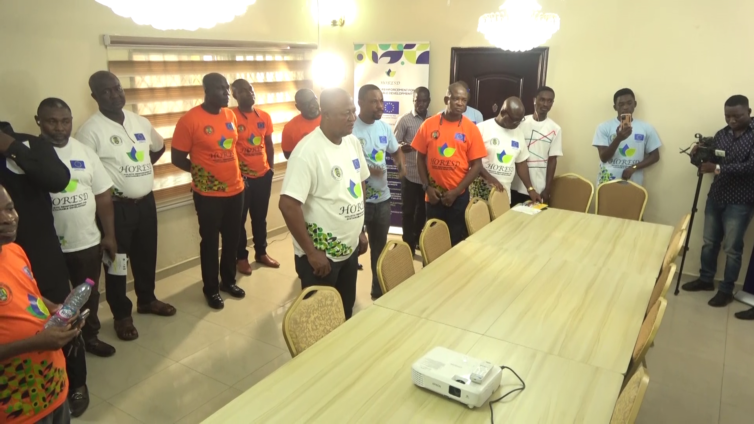The socially-excluded and marginalized persons in the Kumasi Metropolis are set to be trained in green business for gainful employment.
The training is part of a 2.5million Euro project funded by the European Union to facelift the sanitation system in the metropolis.
As the population in Greater Kumasi grows, waste collection and management is becoming a challenge.
Currently, there are little resources for the effective collection and management of solid waste.
The project dubbed “Holistic Reinforcement for Sustainable Development” (HORESD) project is to improve public service delivery in waste management within the Kumasi Metropolis.
A strategic Urban Waste Solid Management Plan has been developed as part of the project.
Metropolitan Chief Executive, Samuel Pyne, says green jobs will be created to execute the Waste Management Plan.
He was speaking on the sidelines of an inaugural ceremony for the establishment of a Green Information Plant.
“The delegates have taken turns on radio to create awareness on the need for citizens of Kumasi to partner the assembly in turning waste into gainful and income earning resources. This EU funded project will assist people at risk of social exclusion who work informally in the waste sector and wish to develop an economic activity in the area of sustainable circular economy.
A Sustainable Entrepreneurship Centre has been set up to train the socially-excluded and marginalized entrepreneurs.
Trainees will be provided with seed capital and capacity building to set up their own businesses in the circular economy.
“Through this project, a training plan will be carried out for those targeted in a school called Sustainable Entrepreneurship School. This school will empower these targeted population with the technical knowhow, reliable data and the financial resources to manage their businesses in the circular economy,” he assured.
A Territorial Management Group, made of representatives of local and national stakeholders, will oversee the project.
The project is a Europe Aid programme involving three local administrations, with the Mancomunitat de la Ribera Alta in Spain as the coordinating partner, the Kumasi Metropolitan Assembly as the beneficiary, and the Chamber of Praia in Cape Verde as the third collaborating partner.
Latest Stories
-
ECG to begin maintenance works for sustained power supply in Ashanti as the rains set in
4 minutes -
My mum told me to quit music – Wendy Shay
6 minutes -
Murder of Sogakope assembly member: Mason jailed for life, 2 others get 94 years in jail
8 minutes -
Kasapreko to list on the Ghana Stock Exchange by end of 2025
20 minutes -
The Ugandan mud wrestlers who became a global sensation
22 minutes -
Former High Commissioner Barbara Akuorkor Benisa celebrates Joy FM at 30 with heartfelt visit
42 minutes -
Kids in Tourism pays courtesy call on Minister of Tourism, Culture and Creative Arts
44 minutes -
GRIDCo, ECG assure Obuasi residents of power after substation fire
59 minutes -
Ghana receives 450,000 barrels of fuel to tackle power shortages
1 hour -
Afanyi Dadzie writes: Criticising ‘neutral’ appointments misses the bigger picture in nation-building
2 hours -
CEO of Ghana Comedy Awards proposes comedy festival for Blackstar Experience
2 hours -
‘You’re absolutely wrong’ – Ablakwa challenges former Deputy Minister on NPP visa time claim
2 hours -
A Legacy at the Crossroads: President Mahama, a third term and the future of Ghana
2 hours -
“Poetry in Ghana is a bit on a decline” – CEO of Ghana Comedy Awards
2 hours -
Savannah Minister warns MMDCEs they risk jobs, relationships if they undermine Prez Mahama’s directives
2 hours

